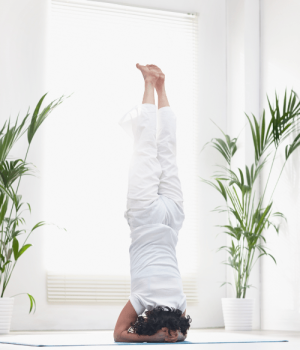Boost Brain and Memory Power with Yoga
In today’s fast-paced world, maintaining optimal brain health and memory power is crucial for overall well-being and productivity. While there are various methods to enhance cognitive function, yoga offers a holistic approach that not only benefits the body but also nurtures the mind.
Understanding the Importance of Brain Health
The brain serves as the control center of the body, responsible for processing information, regulating emotions, and controlling bodily functions. Prioritizing brain health is essential to improve memory, focus, and cognitive abilities.
How Yoga Boost Brain and Memory Power
Yoga incorporates physical postures (asanas), breathing exercises (pranayama), and meditation techniques to promote overall health and well-being. Here’s how specific yoga poses can boost brain and memory power:
1. Downward Facing Dog (Adho Mukha Svanasana)

- Benefits: Improves blood circulation to the brain, reduces stress and anxiety, enhances focus and concentration.
- How to Do It: Start on your hands and knees, lift your hips upward, forming an inverted V-shape with your body. Keep your hands shoulder-width apart and your feet hip-width apart. Hold the pose for several breaths, focusing on deep, steady breathing.
2. Headstand (Sirsasana)

- Benefits: Increases blood flow to the brain, stimulates the nervous system, enhances mental clarity and memory.
- How to Do It: Begin in a kneeling position, interlace your fingers and place the crown of your head on the mat, forming a triangle with your hands. Lift your hips and walk your feet closer to your body, then slowly lift your legs toward the ceiling. Engage your core and hold the pose for a few breaths, gradually increasing the duration as you build strength and stability.
3. Seated Forward Bend (Paschimottanasana)

- Benefits: Calms the mind, relieves stress and tension, promotes relaxation and better sleep, essential for memory consolidation.
- How to Do It: Sit on the floor with your legs extended in front of you. Inhale as you lengthen your spine, then exhale and fold forward from your hips, reaching toward your feet. Keep your back straight and your neck relaxed. Hold the pose for several breaths, feeling the stretch along the back of your legs and spine.
Conclusion
Incorporating these yoga poses into your daily routine can be a powerful tool for boosting brain and memory power. By improving blood circulation, reducing stress, enhancing mental clarity, and promoting relaxation, yoga offers a holistic approach to brain health that benefits both the body and mind.
FAQs
Can yoga really improve brain function and memory power?
- Yes, yoga has been shown to improve blood circulation to the brain, reduce stress levels, and enhance mental clarity, all of which contribute to better brain function and memory power.
Do I need to be flexible to practice yoga poses for brain health?
- No, yoga is accessible to people of all fitness levels and body types. Many yoga poses can be modified to suit individual needs and abilities, making them suitable for everyone, regardless of flexibility.
How often should I practice yoga to see improvements in brain function?
- Consistency is key when practicing yoga for brain health. Aim to practice yoga poses regularly, at least a few times per week, to experience the full benefits for brain function and memory enhancement.
Are there specific yoga poses that are better for boosting brain and memory power?
- While all yoga poses offer benefits for brain health, certain poses, such as Downward Facing Dog, Headstand, and Seated Forward Bend, are particularly effective for improving blood circulation to the brain and promoting relaxation and mental clarity.
Can yoga help prevent age-related cognitive decline?
- Yes, studies have shown that regular yoga practice can help prevent age-related cognitive decline by promoting brain plasticity, reducing stress, and improving overall brain health.
Get Access Now: https://bit.ly/J_Umma

